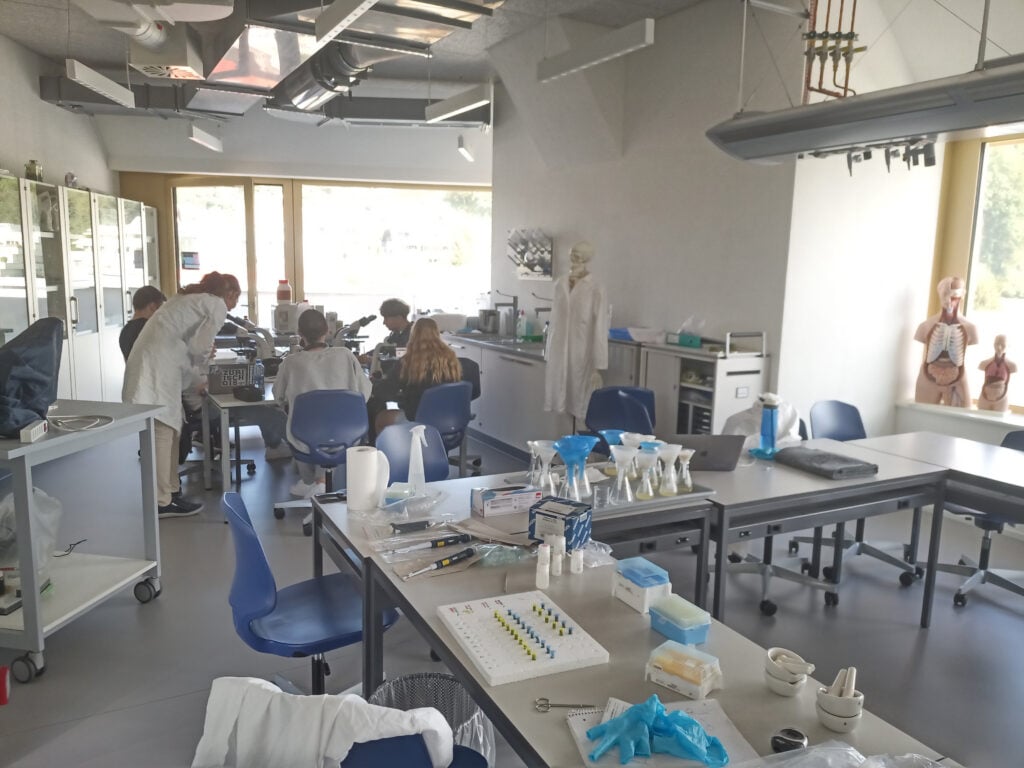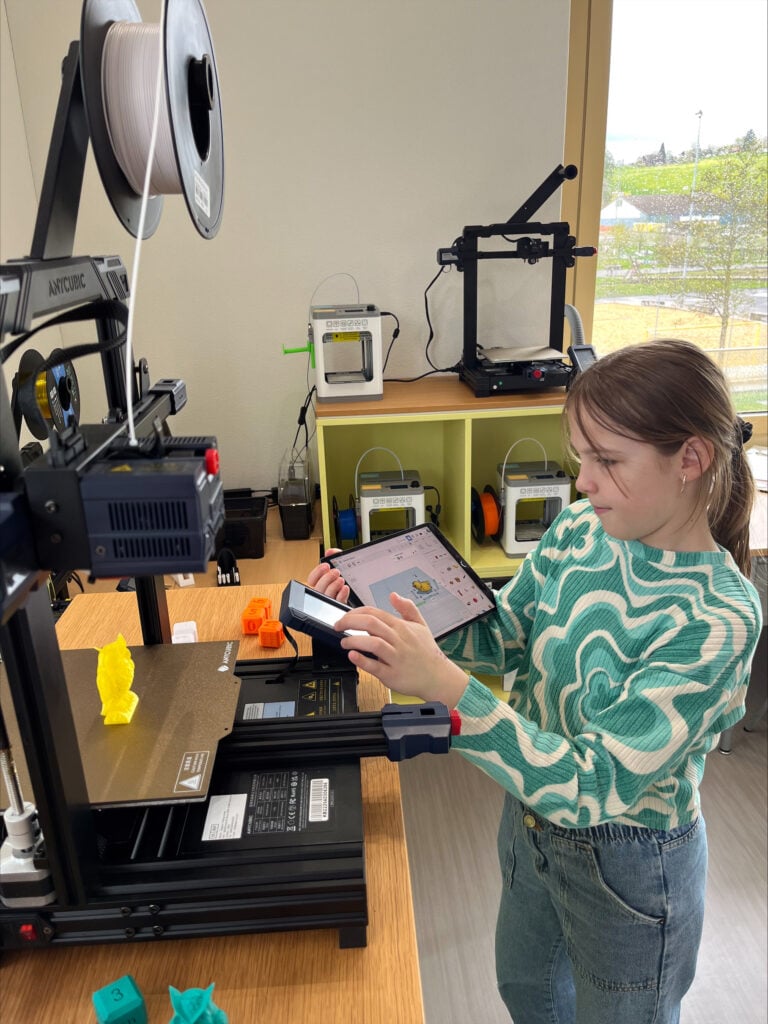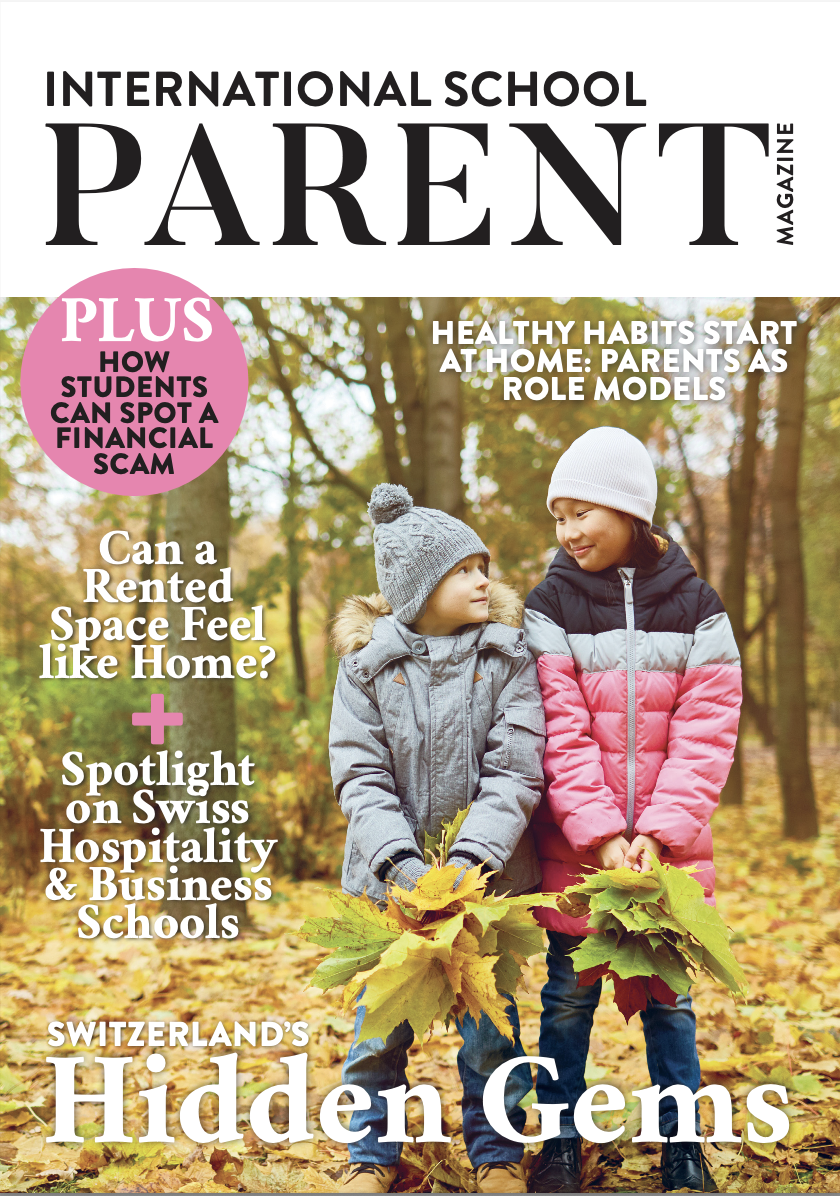Meet the CEO of Obersee Bilingual School: Uwe Feuersenger
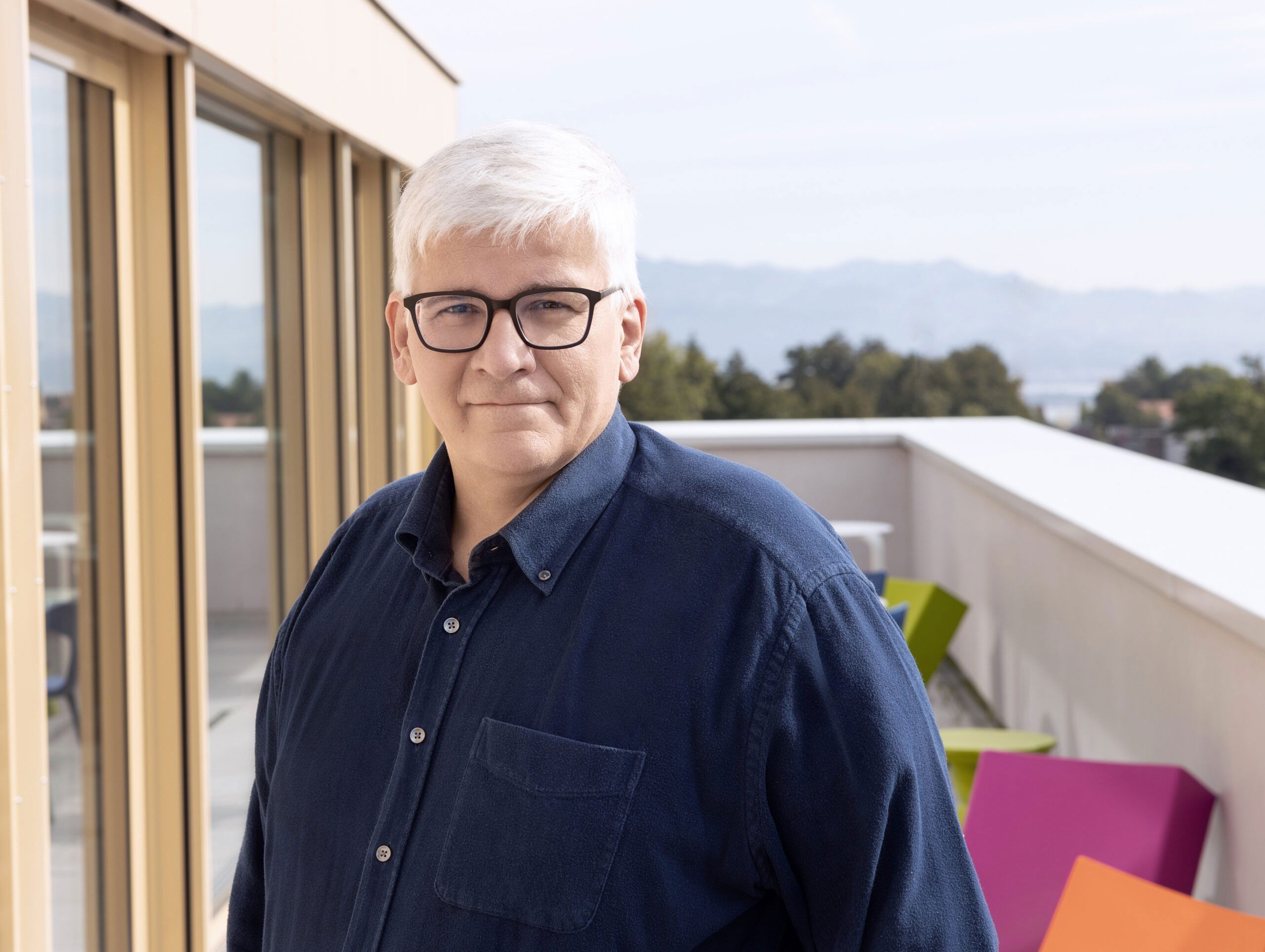
Obersee Bilingual School (OBS) is a forward-thinking private school for students aged three months to 18 years. OBS places a strong emphasis on bilingual education and offers an innovative curriculum that teaches skills such as coding, robotics, digital media, and computer design, alongside traditional subjects. Beyond academics, OBS offers a wide range of extracurricular activities to support students’ holistic development.
Uwe Feuersenger is a pioneer in technology and education.With a career spanning finance, edtech, and a deep passion for entrepreneurship and education, he brings vast experience to his role as CEO. We sat down with Uwe to learn more about the integral role innovation plays in learning at OBS.
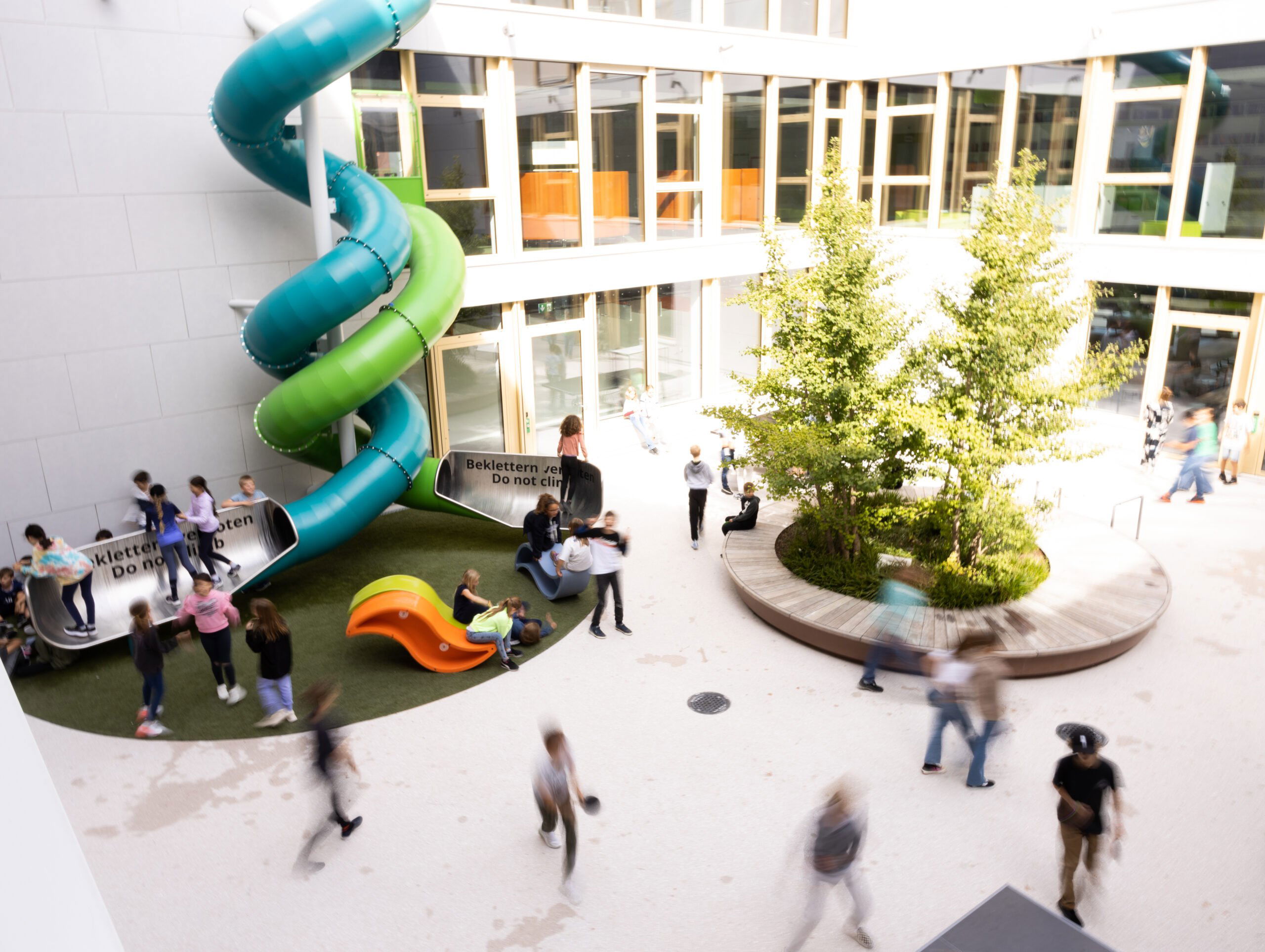
Looking at the entire student journey, how does the integration of Swiss academic standards with international educational practices enhance a student’s readiness for higher education?
The integration of Swiss academic standards with international educational practices creates a unique educational approach that prepares students for success at university. Let me explain how this works:
Complementary Educational Philosophies
The Swiss curriculum (LP21) forms the foundation of OBS’s educational approach from kindergarten through ninth grade, supplemented with elements from international curricula. For early years (Babycare and Pre-K), OBS has developed its own curriculum. This blend creates an educational experience that combines the renowned precision and methodical approach of Swiss education with the creative thinking and global awareness emphasised in international curricula.
Bilingual Fluency and Cultural Competence
OBS’s bilingual immersion in English and German provides students with authentic language exposure and cultural understanding. Students develop genuine fluency in both languages through continuous, contextual learning.
This linguistic and cultural preparation is invaluable for students whether they choose to attend universities in Switzerland, other German-speaking countries, English-speaking nations, or international institutions worldwide. This flexibility represents a significant advantage in today’s interconnected world.
Bilingualism has an important role at OBS, how does this prepare students for participation in global society?
Our immersive approach creates genuine fluency rather than just theoretical language knowledge. Students experience both English and German throughout their daily activities – from academic instruction to social interactions.
At OBS, students change classrooms weekly, having one week in German and the following week continuing seamlessly in English. This allows them to develop subject-specific vocabulary and deep understanding in both languages simultaneously.
Beyond language proficiency, bilingualism develops cognitive skills that benefit students throughout life. Research consistently shows bilingual education enhances cognitive flexibility, problem- solving, and adaptability in approaching challenges from multiple perspectives.
Perhaps most importantly, bilingualism fosters cultural intelligence. When students master two languages, they naturally develop a deeper understanding of the cultural contexts behind those languages. Our students don’t just translate words; they comprehend different worldviews, communication styles, and cultural references.
OBS’s ILO Teaching Strategy is a key point of differentiation. How does it help students move from basic understanding to application and innovation?
The ILO framework – Input, Learning Activities, Output – creates a structured progression that naturally moves students through different cognitive levels.
During the Input phase, we present concepts through multiple formats – visual aids, discussions, demonstrations – ensuring every student can connect with the material regardless of their learning style.
What truly transforms learning happens in the Learning Activities phase. Here, students actively engage with concepts through hands-on experiments, collaborative projects, and problem-solving challenges.
The Output phase then challenges students to demonstrate mastery by creating something original.
This approach benefits different learners in remarkable ways. Visual learners gain from multi-modal presentations, while kinaesthetic learners thrive in the activity phase. Advanced students can dive deeper during activities and create more sophisticated outputs, while those needing support receive scaffolding without being separated from the class journey.
Additionally, we place a strong focus on personalised learning through programmes such as our Advanced Learner Programme. This innovative course for self-directed students from Year Seven allows students greater responsibility over their learning and educational outcomes as well as teaching them valuable skills needed for success at university.
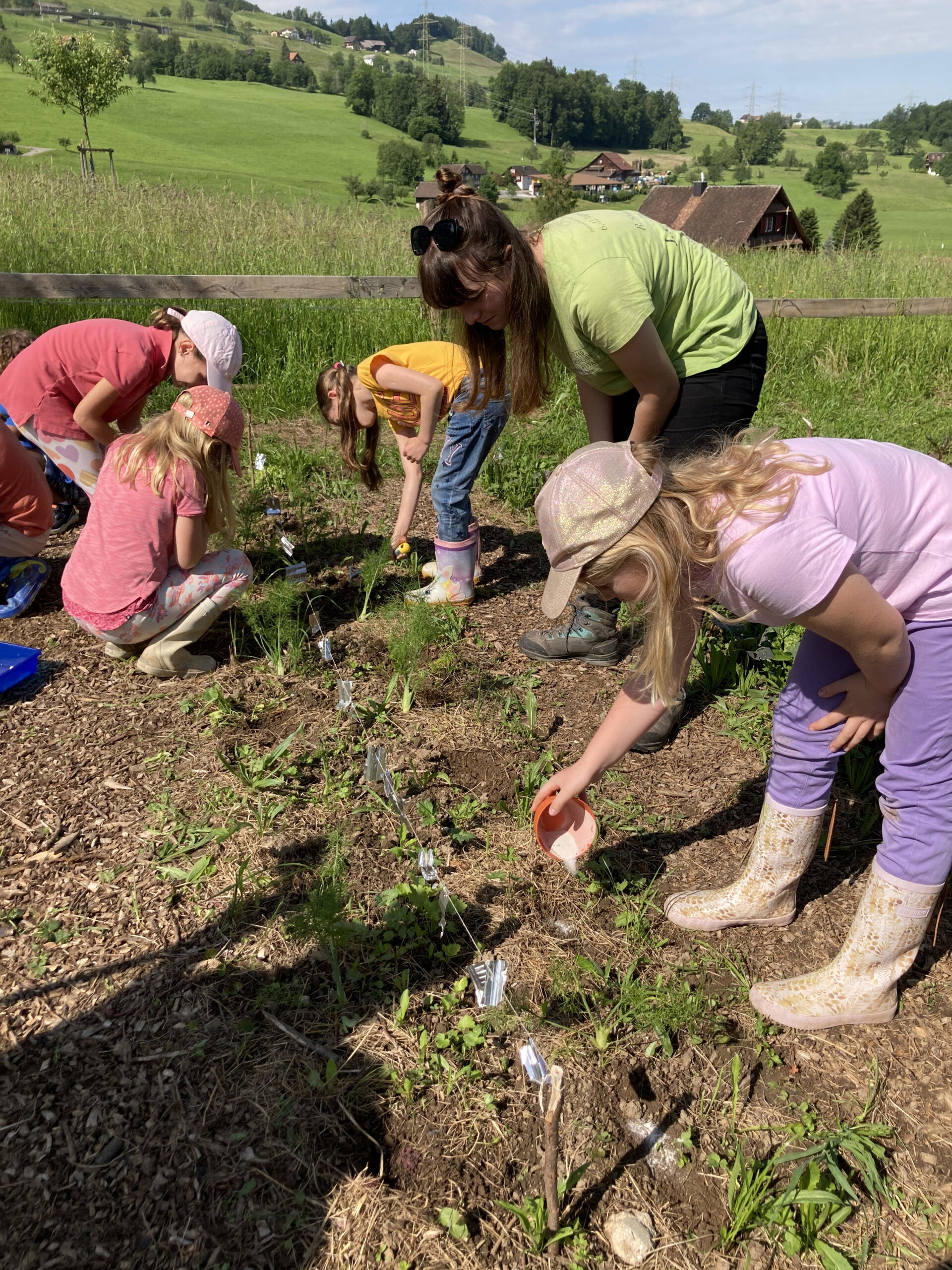
You personally have a passion for technology and future-oriented education. Can you please explain to us what this means and how it applies in the OBS context?
Passion for future-oriented education means recognising that we’re preparing students for a world that’s evolving at an unprecedented pace. At OBS, this philosophy is central to our approach – we are not just teaching today’s curriculum, we’re developing the adaptable, creative thinkers who will shape tomorrow’s world.
We integrate technology meaningfully across the curriculum rather than treating it as a separate subject. Our students work with digital tools from Year One, including coding instruction and device-based learning. This is not about technology for its own sake, but about developing digital fluency as a fundamental skill alongside traditional literacy and numeracy.
We are preparing students to navigate the challenges and opportunities of artificial intelligence. We have clear guidelines for AI use in education that balance technological possibilities with ethical considerations. Our approach recognises that in the future workplace, AI literacy will be as essential as digital literacy is today.
I also think it is important to mention our comprehensive wellbeing programme. Although our programme covers all aspects of student care, we place great emphasis on digital well-being. This means less screen-time, learning about self-esteem online, recognising what is fake, and generally keeping safe in a world lived largely online.
Finally, we focus on developing future- ready competencies through programmes like our Space Agency, Ocean Explorers, and Media Academy. These initiatives combine technical skills with creative problem-solving, collaboration, and critical thinking. For example, when our students work on environmental monitoring at Lake Zurich, they’re simultaneously developing scientific knowledge, data analysis abilities, and environmental stewardship.
What role does early career exploration play in shaping a student’s academic motivation and university choices?
Early career exploration significantly shapes students’ academic motivation and university choices by creating meaningful connections between current learning and future aspirations. When students can visualise potential career paths, their education transforms from abstract requirements to purposeful preparation.
At its core, career exploration builds intrinsic motivation. Students approach subjects with greater enthusiasm when they understand how knowledge applies to fields that interest them. A student fascinated by environmental science naturally finds more motivation in biology or chemistry when they see these subjects as stepping stones toward their goals.
This exploration also provides crucial context for academic decisions. At OBS, where students choose between the Swiss Matura and International Baccalaureate pathways, early career insights help align these choices with long-term objectives. Subject selection becomes strategic rather than merely preference based.
When students reach university selection, they approach the process with greater clarity – evaluating institutions based on specific career preparation rather than reputation alone. They can articulate their goals confidently in applications and make choices that truly fit their aspirations.
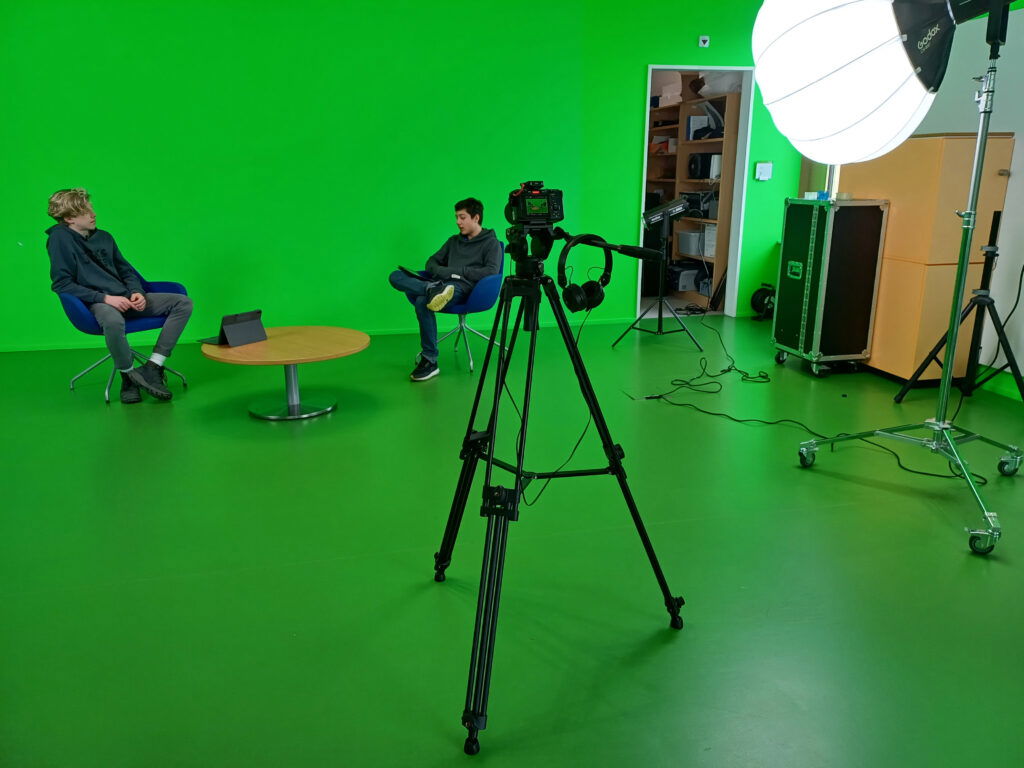
OBS recently opened a new campus, how does this new campus impact students’ learning and how does it differ from traditional campus models?
“If you can design the physical space, the social space, and the information space together to enhance collaborative learning, then that whole milieu turns into a learning technology.”
John Seely Brown’s insight about the integration of physical, social, and information spaces perfectly captures our philosophy at OBS. The campus design itself was created to enhance collaborative learning experiences.
Our new campus represents a significant departure from traditional school models in several key ways:
First, we’ve designed learning studios rather than conventional classrooms. These flexible spaces can be reconfigured based on learning activities, moving from discussion circles to collaborative workstations to individual reflection areas within a single lesson. This physical flexibility supports our teaching framework, allowing seamless transitions between input, learning activities, and output phases.
Second, we’ve integrated technology throughout the campus environment. From iPads for every student to designated areas for digital creation in our Media Academy, technology is not confined to computer labs but woven into the fabric of learning spaces. This approach normalises technology as a tool for learning.
Third, our campus incorporates specialised zones that support signature programmes like our Space Agency, Ocean Explorers, and Aikido training. These purpose-built environments enable immersive, hands-on learning experiences that wouldn’t be possible in conventional classroom settings.
Perhaps most distinctive is our approach to shared spaces. Traditional schools often treat hallways and common areas as purely transitional. Our campus incorporates thoughtfully designed collaboration areas where informal learning and cross-grade interactions naturally occur. These spaces foster the kind of spontaneous knowledge sharing that’s so valuable in modern workplaces.
Even our outdoor areas are intentionally designed as learning environments, connecting students with nature while providing opportunities for environmental education, physical activity, and quiet reflection. This indoor-outdoor connection supports holistic development and wellbeing.
The impact on students is profound. We observe higher engagement, more collaborative learning, and greater ownership of the educational process. The campus doesn’t just house learning— it actively facilitates it by creating an environment where exploration is encouraged, collaboration is natural, and technology enhances rather than dominates the experience.
How have your personal and professional experiences influenced how you lead OBS?
I studied economics. However, my father instilled an entrepreneurial spirit in me, so in 1989 I founded a software distribution company for scientific and educational software. Within a very short time, I was supplying all universities and many schools in German-speaking countries. I then sold that company and got involved with a few software and internet start-ups.
I lived in the US for a while and returned to Germany in April 2000 to set up a venture capital firm. That’s how I met Klaus Tschira, one of the founders of SAP. We had many of the same interests and views, and I even set up his family office. His credo was “Think beyond the limits,” so we invested not only in traditional assets but also in education.
Whenever I travelled to meet fund managers, I combined it with visits to innovative schools or meetings with thought leaders in education. I was also involved in AI early on, as we recognised the need to analyse unstructured data and extract information. I developed a concept for an AI-based learning platform that supports each student individually in the learning process and helps teachers in the classroom.
Unfortunately, Switzerland was the wrong location for this, as the Swiss are very risk-averse and such a project requires a lot of funding, so in the end I was beaten to it. Why am I telling you all this? Because I am an early example of the fact that we live in a time where we no longer have just one job. We must be adaptable, and it is crucial our children know, and have the skills to navigate this.
